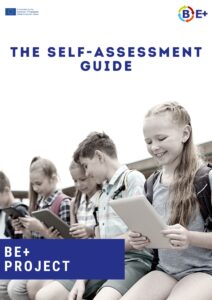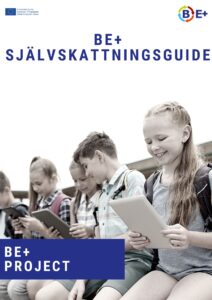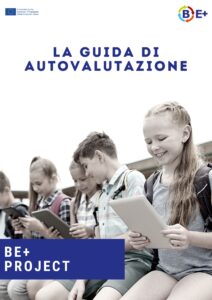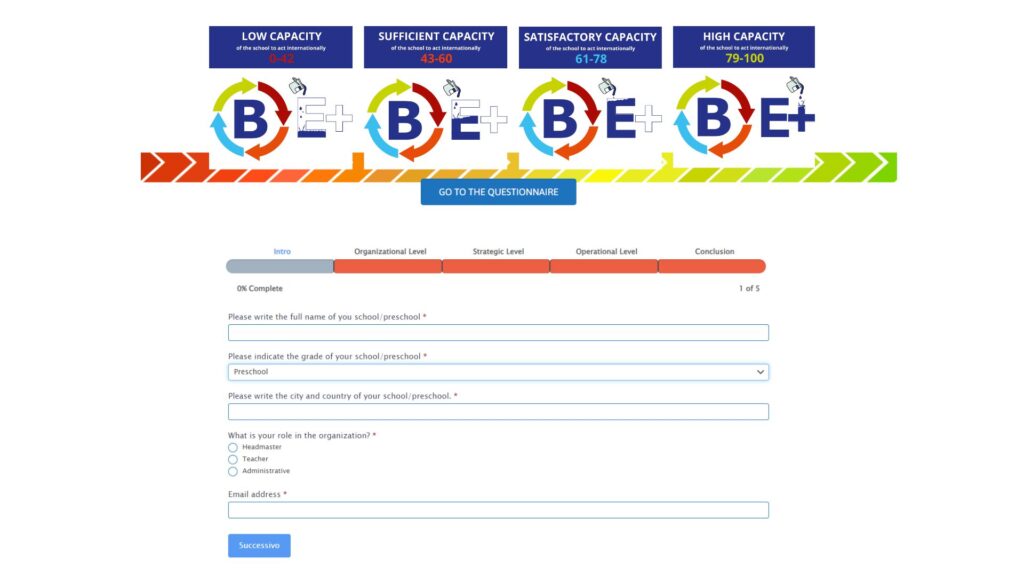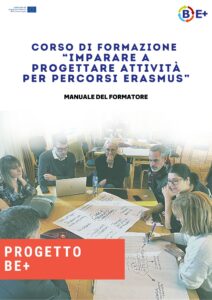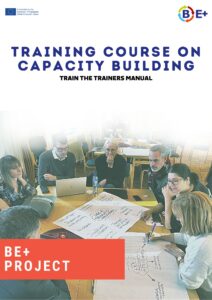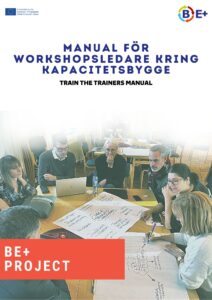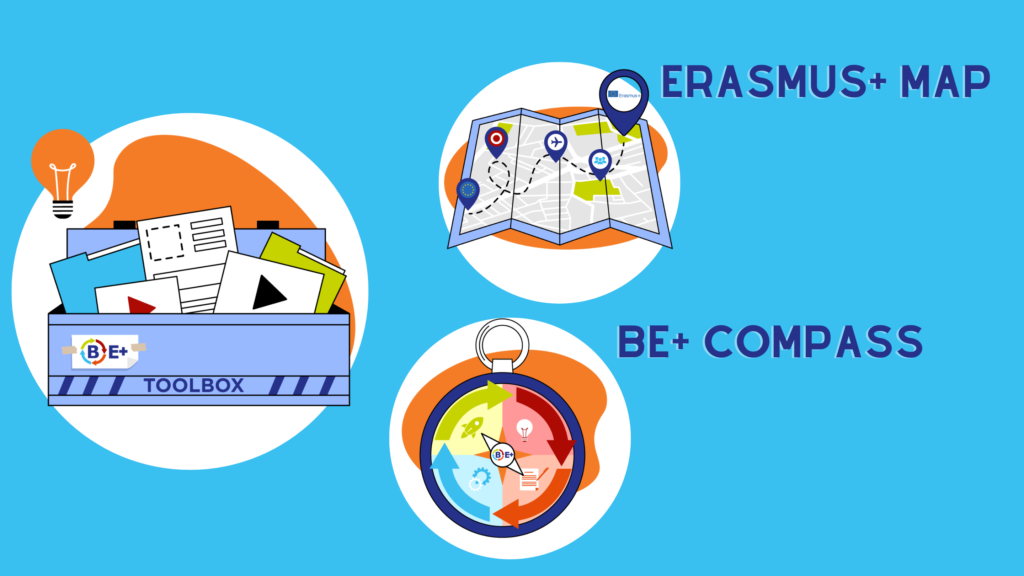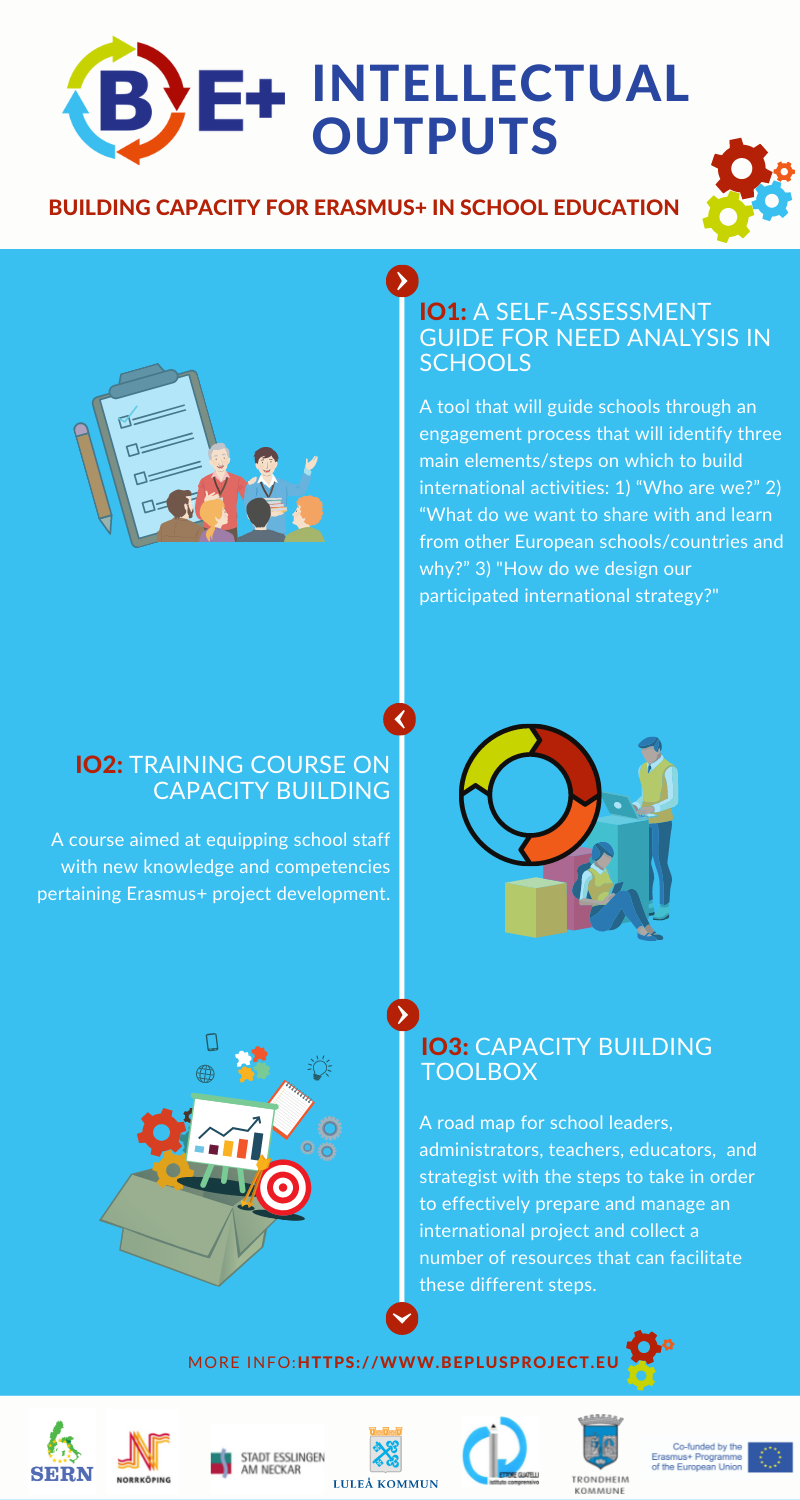
Finansierat av

Erasmus+ KA2
Information
- Length: 2020-2023
- Lead Partner: Utbildningskontoret - Norrköping Municipality (SE)
- Members Involved: SERN, Luleå Municipality(SE)
- Other Partners: Municipality of Esslingen am Neckar (DE), Municipality of Trondheim (NO), istituto Comprensivo Ettore Guatelli - Collecchio (IT)
- Priority Area: Quality Education #InclusiveCommunities
Snabblänkar
Kontaktuppgifter

- nicola.catellani@sern.eu
- +393483892600

- alessia.mereu@sern.eu
- +393493371725
BE+
Building capacity for Erasmus+ in school education
Om projektet
Erasmus+ programmet för perioden 2021-2027 fokuserar i högre grad på rörlighet och ger 12 miljoner människor möjligheter till lärande (tre gånger så många mobiliteter som i det tidigare programmet), bygger upp initiativet European Education Area och arbetar för att stärka den europeiska identiteten. Allt detta innebär att fler skolor, särskilt skolor med missgynnade elever, måste bygga upp kapacitet för Erasmus+ deltagande för att programmet ska få full effekt. Detta innebär också att det är nödvändigt att bredda deltagandet i programmet för att Erasmus+ programmet ska bli framgångsrikt. BE+ partnerskapet, som består av skolor, lokala skolmyndigheter, kommuner och transnationella nätverk från Sverige, Italien, Norge och Tyskland, har konstaterat att skolornas deltagande i Erasmus+ programmen antingen inte är allmänt utbrett i deras lokalsamhällen eller sker på ett sätt som fullt ut kan leda till skolutveckling.
Mål
Målet med BE+ är att öka den administrativa och organisatoriska kapaciteten inom skolutbildningen för K-12 skolor så att lärar- och ledningspersonal är bättre förberedda för transnationellt samarbete inom ramen för Erasmus+.
Mer specifikt innebär detta att:
- Stötta skolor i att identifiera sina behov när det gäller kapacitetsuppbyggnad;
- Utveckla innovativa metoder och verktyg för att tillgodose skolpersonalens utbildningsbehov;
- Förbättra skolpersonalens färdigheter när det gäller att förstå och genomföra projekt, med hjälp av Project Cycle Management (PCM);
- Utveckla en verktygslåda som förbereder skolorna för nästa generation av Erasmus+.
Aktiviteter
Mer än 500 skolpersonal och beslutsfattare deltog i aktiviteter som har spridits och har potential att nå och gynna minst 2000 K-12-skolor.
Evenemangen organiserades i fyra kategorier som var viktiga för att nå de övergripande projektmålen:
- Projektledning
- IO1 En självbedömningsguide för behovsanalys i skolor
- IO2 Utbildning i kapacitetsuppbyggnad
- IO3 Verktygslåda för kapacitetsuppbyggnad
Aktiviteterna relaterade till IO1 gav partnerna och projektet en mer holistisk, djupgående, uppdaterad förståelse för skolornas behov och resulterade i ett självbedömningsverktyg som sätter scenen för de andra intellektuella resultaten.
Med utgångspunkt i IO1 kommer IO2 att inledas, med en innehållsutvecklingsfas för de kurser som kommer att testas och utvärderas under två inlärnings-, utlärnings- och fortbildningsaktiviteter.
Kategori nr. 4 – IO3 – sammanfattar hela projektet genom att samla alla resurser på en lättillgänglig och användarvänlig plattform. Verktygslådan gör det mer sannolikt att resultaten kommer att användas av ett bredare tvärsnitt av lärare, utbildare, beslutsfattare och andra intressenter, utanför projektpartnernas nätverk, utöver partnerländerna och utöver projektets tidslinje, vilket säkerställer projektets hållbarhet när det avslutats.
Output
-
IO1 En självbedömningsguide för behovsanalys i skolor
Ett verktyg för lärare, rektorer och skolpersonal som hjälper dem att identifiera och ta itu med skolans behov av internationalisering. Guiden förenklar processen i fyra användarvänliga steg, vilket gör det enklare än någonsin att kickstarta resan mot ett globalt engagemang.
Klicka här för att fylla i frågeformuläret som syftar till att ge feedback och indikationer om kvaliteten på de internationella aktiviteter som genomförs på skolan och om skolans nuvarande kapacitet i samband med Erasmus+-samarbeten. Syftet är inte att döma utan att låta lärare och personal fundera över faktorer som kan vara till hjälp för att förbättra kvaliteten på den internationella verksamheten och samtidigt ge en möjlighet att sätta igång en reflektionsprocess som kan leda till en förbättrad organisatorisk kapacitet. Efter att ha fyllt i frågeformuläret får deltagarna automatisk och personlig feedback baserad på svaren.
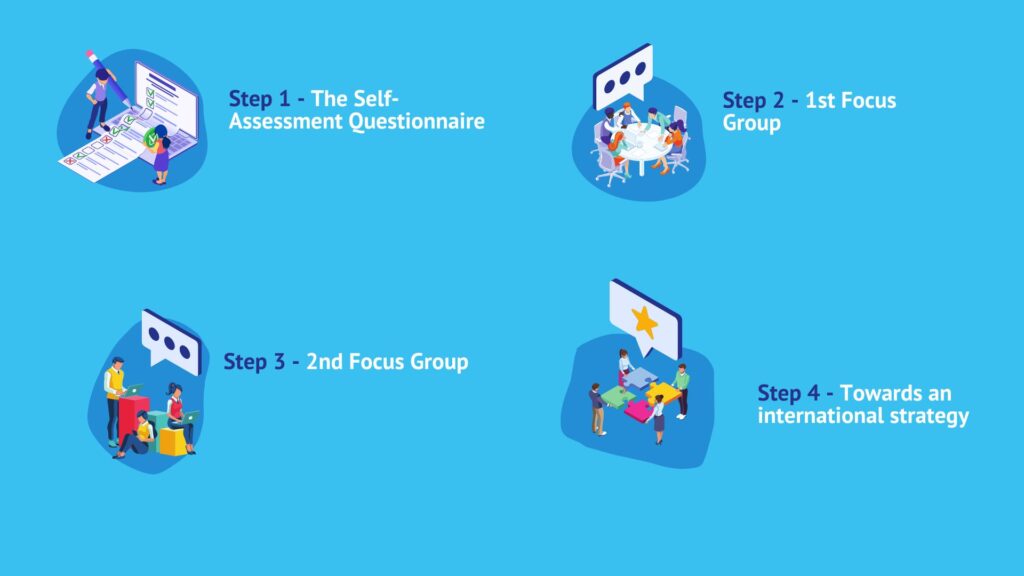
-
IO2 Utbildningskurs om kapacitetsuppbyggnad
Syftet med BE+ ”train the trainer manual” är att stödja dem som leder kapacitetsuppbyggnadsprocessen inom skolan när det gäller internationella frågor. Handboken är utformad för att öka deras kollegors förmåga att planera och genomföra EU-projekt effektivt inom ramen för Erasmus-programmet.
BE+-projektet har testat de utbildningsaktiviteter som beskrivs nedan genom två seminarier där mer än 30 lärare och rektorer från fyra olika länder deltog. En viktig aspekt som har framkommit under testerna, och som har betonats av deltagarna, är vikten av att använda en gemensam metod. Projektcykelhantering (PCM) kan vara ett avgörande planeringsverktyg i Erasmusprojekt, eftersom det ger ett strukturerat ramverk för effektiv projektplanering som bidrar till att leverera projekt av högre kvalitet. Denna ”utbilda utbildaren”-handbok kommer att hjälpa skolor att införa denna metod inom ramen för sina internationella aktiviteter och projekt.
-
IO3 Capacity Building Toolbox
Att navigera i Erasmus+-programmet kan vara en spännande men samtidigt utmanande resa.
För att hjälpa skolorna att hålla sig på rätt spår och uppnå de internationella målen för din skola, syftar BE+-projektet till att erbjuda dem en karta och en kompass för att vägleda skolorna i en framgångsrik utveckling av deras internationella verksamhet.
Verksamhet
För att testa det material som utvecklats inom ramen för projektet anordnades två utbildningsseminarier:
FÖRSTA UTBILDNINGSSEMINARIET – oktober 2022 – Luleå (SE)
Det första seminariet i BE+-projektet ägde rum i Sverige i oktober 2022.
Från måndag till torsdag samlades mer än 30 deltagare mellan lärare och rektorer från 🇮🇹🇸🇪🇩🇪🇳🇴 i Luleå för att fördjupa sina kunskaper om projektplanering inom ramen för Erasmus +.
Kärnan i seminariet var en workshop ledd av SERN där deltagarna lärde sig om de viktigaste faserna i projektcykelhantering och hur man utvecklar ett projektförslag med utgångspunkt från en behovsanalys. Deltagarna hade också möjlighet att delta i en föreläsning från Universitets- och högskolerådet – UHR om huvuddragen i KA1- och KA2-projekten, att besöka lokala skolor och att utbyta sina erfarenheter av Erasmus-projekt som stärker den europeiska dimensionen av deras organisations🇪🇺
ANDRA UTBILDNINGSSEMINARIET – FEBRUARI 2023 – Parma och Collecchio (Italien)
Det andra seminariet i BE+-projektet ägde rum i februari 2023 med SERN och IC Guatelli som värdar i Parma och Collecchio 🇮🇹
⌛Från måndag till torsdag träffades mer än 30 deltagare mellan lärare och rektorer från 🇮🇹🇸🇪🇩🇪🇳🇴 i Parma och Collecchio för att fortsätta det arbete som inleddes i Luleå i oktober förra året.
Skolorna fick möjlighet att fördjupa sina kunskaper om projektcykelhantering och lära sig hur man formulerar ett vinnande projektförslag baserat på den behovsanalys som utarbetades under det första seminariet.
Deltagarna besökte också lokala skolor som Istituto Comprensivo Guatelli, projektpartner, och Liceo Marconi i Parma för att utbyta erfarenheter och synpunkter.
Inverkan
De långsiktiga effekterna av BE+ är i slutändan att öka den administrativa och organisatoriska kapaciteten i hela utbildningssystemet så att Erasmus+-programmet kan användas som ett verktyg för moderniseringen av de europeiska utbildningssystemen.
Results
Projektet resulterade i många resultat relaterade till kapacitetsuppbyggnad, från identifierade behov hos skolor, utveckling och testning av innovativa verktyg och metoder, ökad kunskap om projektledningscykeln, ökat förtroende för att delta i ansökan om Erasmus + finansiering till upptagningen i nya skolkontexter och förstärkning av den europeiska dimensionen i K-12-utbildningen.

